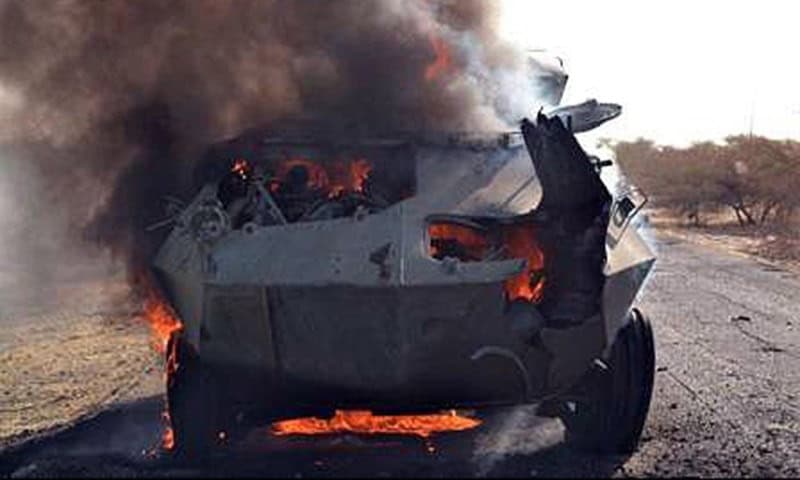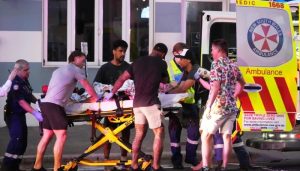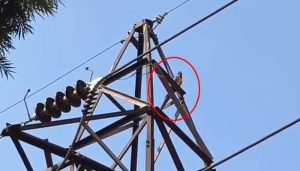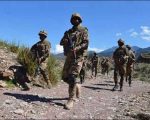ABUJA (AFP) – Nigeria on Wednesday claimed to have killed more than 300 Boko Haram militants in a counter-offensive, as Chad pushed into rebel-held areas but an air strike left at least 20 civilians dead.
Boko Haram meanwhile vowed to make voting impossible in Nigeria’s upcoming presidential and parliamentary elections after a brace of deadly suicide attacks in the country’s violence-wracked northeast.
Operations to end the deadly insurgency were cited as the reason to delay polling by six weeks to March 28 but the elections chief ruled out further postponement as “unconstitutional”.
The military’s claim of “massive” Boko Haram casualties came as it said it had retaken the garrison town of Monguno in Borno state that had been captured on January 25 and 10 other communities.
There was no independent verification of the claims, which follow similar assertions about high numbers of militant deaths by Niger, Chad and Cameroon involved in the regional fight-back.
Civilian vigilantes in Monguno, from which a militant strike on the state capital Maiduguri was expected to be launched, confirmed the recapture but said only that there were heavy casualties.
The recapture, and the purported destruction of a vast cache of arms, equipment and ammunition, adds to a list of claimed military victories in recent weeks.
The Chadian military, which recently regained control of the Nigerian town of Gamboru on the border with Cameroon, on Tuesday evening said they had pushed further into Borno.
Two Chadian soldiers and several Boko Haram fighters were killed in violent clashes around Dikwa, some 50 kilometres (31 miles) southwest of Gamboru, on Tuesday afternoon.
A militant camp, which is near the group’s stronghold in the Sambisa Forest, was overrun, Chadian military sources said.
Chad’s presence well inside Nigerian territory is a first and may indicate a strategy to push on further to rebel-controlled areas to assist Nigeria’s military, who have failed to end the violence.
There was a set-back for the regional force, however, as local officials and humanitarian sources said between 20 and 30 mourners at a funeral were killed in an air strike by an unidentified plane.
The bombs struck near the mosque in Abadam, half of which is in Niger and the other in Nigeria. Only the Niger side of the village was hit.
Troops from Niger and Chad are currently mobilised on the border against the Boko Haram threat but both countries’ militaries denied being responsible.
Nigerian Air Force spokesman Air Commodore Dele Alonge claimed no knowledge of the bombing, adding: “There has not been any report from our people of such an incident.”
A “friendly fire” incident could risk losing the coalition vital support from the local population and creating further tensions in the fragile coalition.
The ongoing operations against Boko Haram were cited by Nigeria’s national security advisor Sambo Dasuki and military top brass as a reason to delay the country’s elections scheduled for February 14.
The chairman of the Independent National Electoral Commission (INEC), Attahiru Jega, accepted the advice after being told that soldiers would not be available to provide security on polling day.
Jega’s decision was criticised and many have viewed as unrealistic the six-week deadline to secure and stabilise the northeast to allow voting to take place, especially with violence still raging.
The INEC boss appeared before senators in the upper chamber of parliament on Wednesday to explain his actions and was categorical that there must be no further postponement.
“I don’t see how anyone can contemplate any extension beyond these six weeks because there is no constitutional grounds on which you can do that,” he said.
Nigeria’s constitution requires elections to take place at least 30 days before the handover of power on May 29.
Debate since the postponement was announced has centred on whether the ruling party orchestrated the delay to give them more time to revive President Goodluck Jonathan’s re-election campaign.
Boko Haram leader Abubakar Shekau vowed in a new video posted on Tuesday evening on Twitter: “This election will not be held even if we are dead.”
Shekau also claimed responsibility for a large-scale attack on the northeastern city of Gombe last Saturday where leaflets were dropped warning people not to vote.
Sarfraz Ali
The writer is an Editor of Digital Media for Daily Pakistan. He can be contacted at sarfraz1168@gmail.com.














